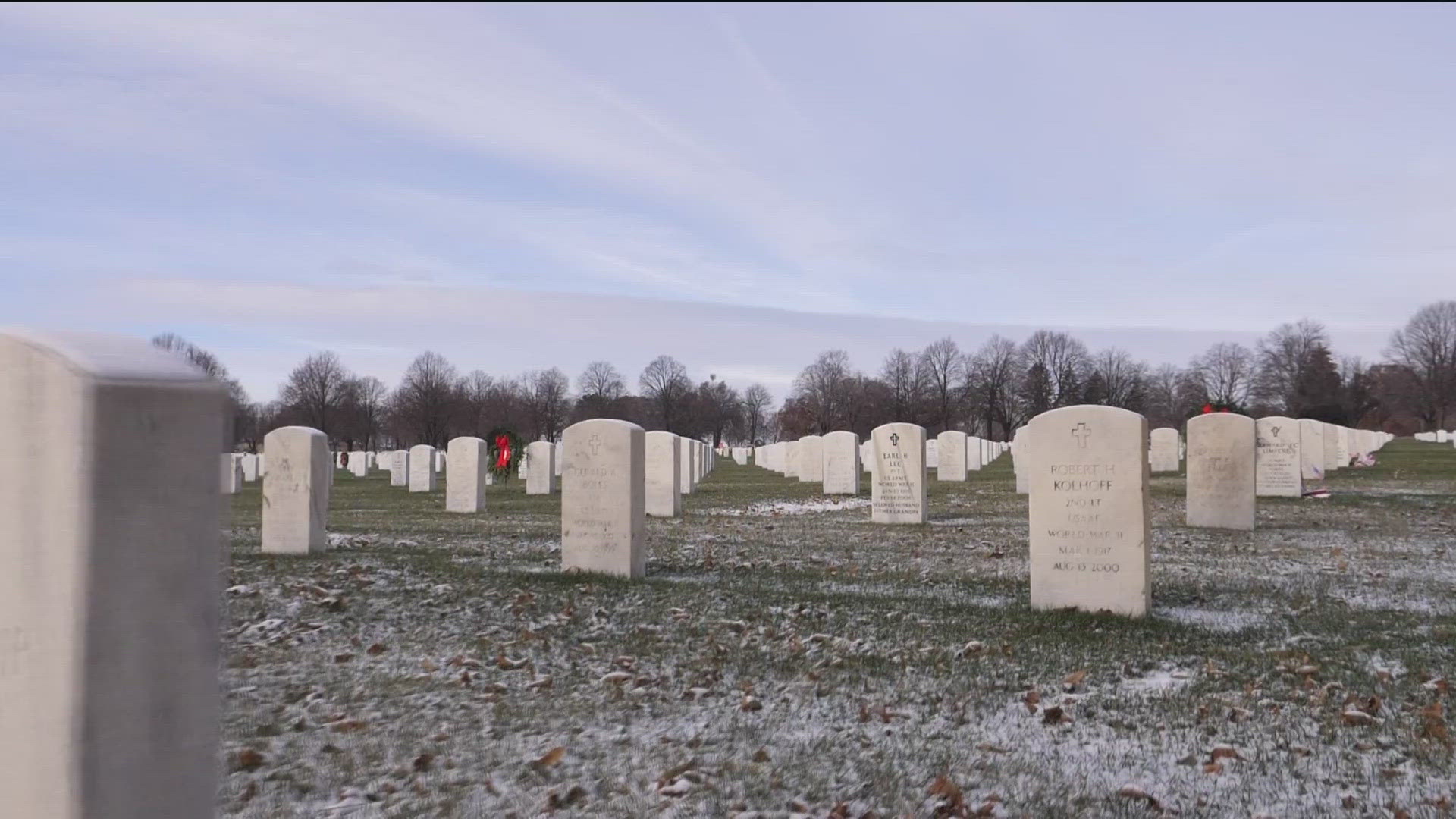MINNEAPOLIS — Nearly 74 years to the day since he was officially deemed Missing in Action during the Korean war, a Minneapolis soldier finally reached his final resting place.
The burial at Fort Snelling National Cemetery, which came with full military honors, brought closure to the family of Army Corporal William Colby, but it couldn't bring back the family - and memories - that have long since passed.
"I was little," said Jinny Bouvette, Corporal Colby's cousin, who is also among the few surviving family members who ever met him. "We were about nine years difference when he joined the service, I was ten."
For years, Bouvette says her memories of her cousin Billy, were always clouded by sadness by what happened just months after he deployed to fight in the Korean War.
Colby was just 19 years old and serving in the Korean War when he was declared missing in action on Dec. 2, 1950, after his unit was attacked by the Chinese People's Army as they attempted to withdraw from the Chosin Reservoir.
"They figure that's where Billy was," Bouvette said, pointing to a green circle on a printed map of the Chosin Reservoir. "That's where he was the last time that he was reported (alive)."
The young soldier could not be recovered following the battle, and the U.S. Army issued a presumptive finding of death on Dec. 31, 1953.
"We never thought of him as being killed in action, we always thought of him as just missing," Bouvette said. "My aunt, she always thought he was alive somewhere."
His fate was finally confirmed for family members by the Defense POW/MIA Accounting Agency on May 2, 2024, after Colby's remains were identified from 55 boxes of remains returned to the U.S. by the North Korean government in 2018.
The process required a DNA analysis of his remains and a sample from a living relative before it could be matched and verified.
Bouvette says representatives initially tried to reach her, but it wasn't until learning that her aunt and cousin had submitted those DNA samples that she realized what was happening.
"At first I thought they were just people trying to scam old people, and I wouldn't answer them," she said, with a laugh. "But eventually, that's how I found out that he was really, really gone."
Just a few months later, the Army's Past Conflict Repatriations Branch helped return his remains, along with a jacket adorned with a full accounting of his honors.
"He didn't get them when he was alive," Bouvette said. "So I told them to put them in the casket with him, so he's got them now."
She did decide to hold on to one of his awards for herself, Colby's Purple Heart.
"I just can't tell you what it feels like," she said, looking at the military medal in her hand. "It fills your heart right up. It just fills your heart right up."
Yet it can't quite compare to seeing his procession finally reach its end.
"My heart is so full... it is overflowing," she said. "I just can't... I have no words. I'm just glad that he's here, and to know he's home now. He's home."

